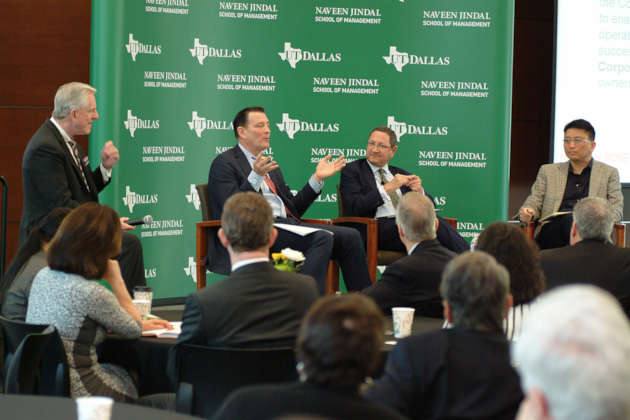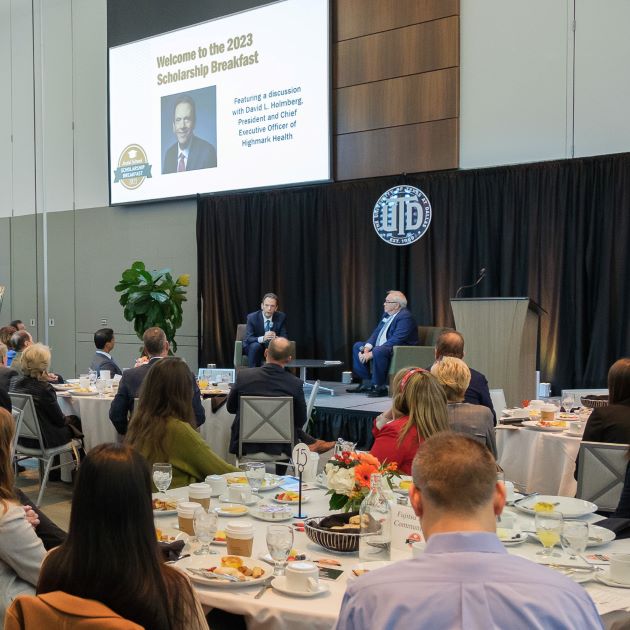
The possible effects of Donald Trump’s presidency on the state of trade in the United States was the topic of discussion at a recent breakfast and panel discussion presented by the Institute for Excellence in Corporate Governance (IECG) at the Naveen Jindal School of Management in collaboration with Norton Rose Fulbright, a global law firm with an active Dallas practice.
The panel’s topic, “The Future of Free Trade in a Storm of Political Change” is even more relevant now than when it was selected in October. Both before and since his election, President Trump has opined about the unfairness of trade agreements to the U.S., and he particularly focused on the North American Free Trade Agreement – NAFTA, which went into effect in 1994. So, it is perhaps not surprising that much of the IECG panel discussion before an audience of 120 focused on the repercussions if the agreement between the U. S., Mexico and Canada is altered or goes away entirely.
Considered an expert on the topic, panel member Dr. Mike Peng, O.P. Jindal Distinguished Chair of Global Strategy, wrote “What Happens if NAFTA Goes Away?” for the January issue of Texas CEO magazine.
“If NAFTA is canceled or if tariffs are increased, Mexico would retaliate,” he said. “It would increase trade with others such as the European Union, Japan and China. Without the preferential treatment provided by NAFTA, the U.S. will lose market share in Mexico, and that is not a tiny little market.”
Other panel members were Kenneth A. Hersh, president and CEO of the George W. Bush Presidential Center and co-founder and president of NGP Capital Management; and Todd Bluedorn, chairman of the board and CEO of Lennox International.
Dennis McCuistion, executive director of the institute, moderated the discussion.
Bluedorn, who grew up in Pennsylvania in a union family and saw the steel industry leave, taking jobs with it, said that he believes in free trade and that this is the time to have open discussions on the topic. “I think this is a multilevel issue we have to solve.”
Hersh said he does not believe that NAFTA is the biggest culprit when it comes to job loss in the U.S.
During the presidential campaign, “I was stunned that free trade became the scapegoat for job loss,” he said. “Trump tied job loss to trade. Why didn’t he tie it to education?” He also pointed to other factors such as regulations and a lack of training.
He pointed to the state of North Carolina as an example of a situation where its largest industries, furniture manufacturing and textile, left, taking jobs with them, but the state reinvented itself by bringing in medical and healthcare related industries and businesses.
Bluedorn countered, saying he doesn’t believe reinvention or education is the answer for some groups of workers. “If I’m a 45-year-old worker in manufacturing, you aren’t going to find me working in a hospital. An entire generation has been lost. Education is a long and complicated answer for that worker.”





